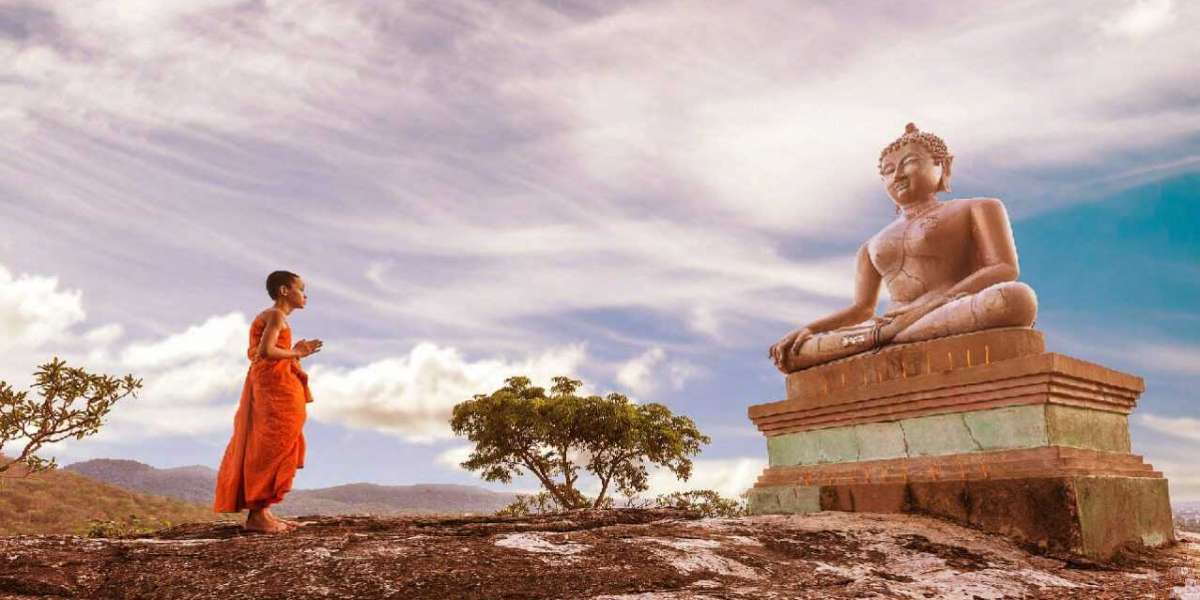I’ve always been drawn to travel, but in recent years, I’ve noticed a growing trend that combines exploration with spirituality. Faith tourism, or spiritual travel, is becoming increasingly popular as people seek experiences that feed the soul as well as the senses. Unlike typical sightseeing, this type of travel focuses on understanding religious practices, visiting sacred sites, and engaging with local communities in a meaningful way.
For me, the appeal of faith tourism lies in the opportunity to pause from daily routines and reflect on life from a broader perspective. Whether it’s walking through ancient temples, attending ceremonies, or exploring historic churches, these experiences have a unique way of connecting travelers to both history and personal reflection.
Understanding Faith Tourism
Faith tourism is more than visiting religious landmarks; it’s about immersing yourself in the culture and understanding the spiritual significance behind each place. Pilgrimages, sacred journeys, and retreats are all part of this growing trend. Many destinations are now promoting faith tourism, recognizing its appeal for travelers seeking deeper connections.
Some aspects I find most interesting include:
- Pilgrimage Routes: Famous routes like the Camino de Santiago or the Kumbh Mela in India attract thousands seeking spiritual growth.
- Historic Sites: Visiting ancient churches, mosques, temples, or shrines provides insight into religious history and traditions.
- Cultural Engagement: Participating in festivals or rituals allows travelers to experience faith practices firsthand.
This kind of travel offers a sense of purpose beyond leisure. It’s an opportunity to reflect, learn, and gain a deeper appreciation for diverse cultures.
The Role of Spiritual Retreats
In addition to visiting sacred sites, spiritual retreats have become a significant aspect of faith tourism. Retreats provide structured environments for meditation, prayer, and personal growth. I’ve found that these experiences offer a calm and reflective break from the constant pace of modern life.
Many retreats are designed to cater to both novices and experienced practitioners. Activities might include guided meditation, yoga, study of religious texts, and group discussions. These retreats often take place in serene locations, from mountain monasteries to coastal temples, adding a natural dimension to the spiritual experience.
The structured environment allows travelers to focus inward, helping me appreciate how spiritual journeys can complement daily life. Even while exploring these retreats, I sometimes enjoy small moments of personal indulgence, like savoring Jam Monster Flavors, which brings a touch of familiar comfort during my travels.
Exploring Pilgrimages and Sacred Routes
Pilgrimages are at the heart of faith tourism. Many people embark on long journeys to sacred destinations, driven by personal reflection, devotion, or curiosity. I’ve noticed that these journeys are not only spiritually rewarding but also provide opportunities for physical activity, cultural immersion, and social interaction.
Some popular pilgrimages include:
- Camino de Santiago (Spain): A network of routes leading to Santiago de Compostela, known for its historical and spiritual significance.
- Kumbh Mela (India): One of the largest religious gatherings in the world, attracting millions of participants.
- Mecca (Saudi Arabia): The Hajj pilgrimage, a significant event for Muslims globally.
Walking these routes or participating in the ceremonies allows travelers to connect with people from diverse backgrounds while sharing a common spiritual goal. I’ve found that the combination of reflection, community, and physical journey creates a sense of accomplishment that stays with me long after the trip.
The experience is often paired with small comforts, much like enjoying a moment of relaxation with Blackberry Jam Monster Nicotine Salt. Both provide a sense of balance and personal enjoyment during long or reflective journeys.
Faith Tourism and Cultural Appreciation
Another aspect I appreciate is how faith tourism encourages cultural appreciation. By visiting religious sites, attending local festivals, or engaging with practitioners, I’ve gained insights into different belief systems and traditions. This kind of travel promotes understanding, tolerance, and respect for diversity.
- Local Interaction: Engaging with local communities helps travelers understand cultural practices in context.
- Historic Learning: Religious sites often provide lessons in architecture, art, and history.
- Personal Growth: Experiencing diverse traditions encourages reflection on one’s own beliefs and values.
For many travelers, including myself, faith tourism has become a way to expand horizons. It encourages mindfulness and appreciation for both history and contemporary practice, creating lasting memories and meaningful experiences.
Even during these explorations, I enjoy moments of personal indulgence that make the journey more enjoyable, like trying a familiar flavor such as Jam Monster Salt E-Liquids. These small comforts add an extra layer of enjoyment to spiritual travel, making it both reflective and pleasurable.
Planning a Faith Tourism Journey
If you’re considering faith tourism, I’ve learned that preparation is key. Researching destinations, understanding local customs, and planning your itinerary ensures a smooth experience. Some tips I follow include:
- Study the History: Understanding the significance of each site or ritual adds depth to the experience.
- Respect Local Customs: Appropriate attire, behavior, and etiquette are important when visiting sacred places.
- Flexible Planning: While structure is useful, leaving room for spontaneous experiences can lead to unexpected insights.
Faith tourism is not just about checking off destinations on a list—it’s about engaging fully with the spiritual and cultural context of each place.
Final Thoughts
Faith tourism is more than a travel trend—it’s a journey that nurtures the mind, body, and spirit. Through pilgrimages, retreats, and cultural engagement, travelers can gain personal insights while appreciating the richness of global traditions.
For me, combining spiritual exploration with small personal moments, like enjoying Jam Monster Flavors, or trying Blackberry Jam Monster Nicotine Salt, and savoring Jam Monster Salt E-Liquids, adds an extra dimension of enjoyment to the journey. It reminds me that travel, reflection, and comfort can coexist, making every trip meaningful and memorable.
Exploring the world through the lens of faith provides perspective, balance, and inspiration—a combination that keeps me returning to these experiences time and again.








